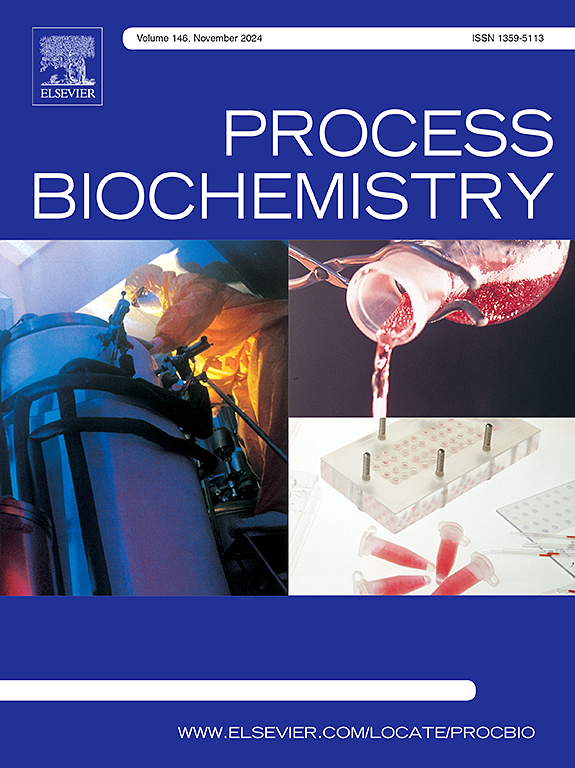Metabolic engineering of Yarrowia lipolytica to produce menaquinone-7
IF 4
3区 生物学
Q2 BIOCHEMISTRY & MOLECULAR BIOLOGY
引用次数: 0
Abstract
Menaquinone-7 (MK-7), a vital subtype of fat-soluble vitamin K2, plays essential physiological roles in preventing osteoporosis, vascular calcification, and reducing vascular damage. Its broad applications in functional foods and pharmaceuticals have attracted significant attention. Yarrowia lipolytica, with its abundant acetyl-CoA supply and functional mevalonate (MVA) pathway for synthesizing the polyprenyl side chain of MK-7, demonstrates exceptional capabilities in transporting and storing hydrophobic compounds, making it an ideal host for MK-7 production. In this study, we developed an engineered strain of Y. lipolytica to achieve high-titer production of MK-7 through supplementation with exogenous precursors, 1,4-dihydroxy-2-naphthoic acid (DHNA) or menadione (VK3). By employing metabolic engineering, peroxisome engineering, and fermentation optimization, the final strain YQ-9 produced 255 ± 0.58 mg/L MK-7 after 144 h of shake-flask fermentation, representing the highest reported titer in Y. lipolytica to date. This study not only lays the foundation for the future de novo MK-7 synthesis in Y. lipolytica but also provides novel insights for industrial-scale MK-7 production.
溶脂耶氏菌代谢工程生产甲基萘醌-7
甲基萘醌-7 (MK-7)是脂溶性维生素K2的重要亚型,在预防骨质疏松、血管钙化和减少血管损伤方面发挥着重要的生理作用。它在功能食品和药品中的广泛应用引起了人们的极大关注。聚脂耶氏菌具有丰富的乙酰辅酶a供应和合成MK-7聚戊烯基侧链的功能性甲羟戊酸(MVA)途径,具有转运和储存疏水化合物的特殊能力,使其成为生产MK-7的理想宿主。在这项研究中,我们开发了一种工程菌株,通过补充外源性前体1,4-二羟基-2-萘酸(脱氧核糖酸)或甲萘酮(VK3)来实现高滴度的MK-7生产。通过代谢工程、过氧化物酶体工程和发酵优化,最终菌株YQ-9在摇瓶发酵144 h后产生255 ± 0.58 mg/L的MK-7,是迄今为止报道的最高滴度。该研究不仅为未来在脂肪瘤中重新合成MK-7奠定了基础,而且为工业规模的MK-7生产提供了新的见解。
本文章由计算机程序翻译,如有差异,请以英文原文为准。
求助全文
约1分钟内获得全文
求助全文
来源期刊

Process Biochemistry
生物-工程:化工
CiteScore
8.30
自引率
4.50%
发文量
374
审稿时长
53 days
期刊介绍:
Process Biochemistry is an application-orientated research journal devoted to reporting advances with originality and novelty, in the science and technology of the processes involving bioactive molecules and living organisms. These processes concern the production of useful metabolites or materials, or the removal of toxic compounds using tools and methods of current biology and engineering. Its main areas of interest include novel bioprocesses and enabling technologies (such as nanobiotechnology, tissue engineering, directed evolution, metabolic engineering, systems biology, and synthetic biology) applicable in food (nutraceutical), healthcare (medical, pharmaceutical, cosmetic), energy (biofuels), environmental, and biorefinery industries and their underlying biological and engineering principles.
 求助内容:
求助内容: 应助结果提醒方式:
应助结果提醒方式:


